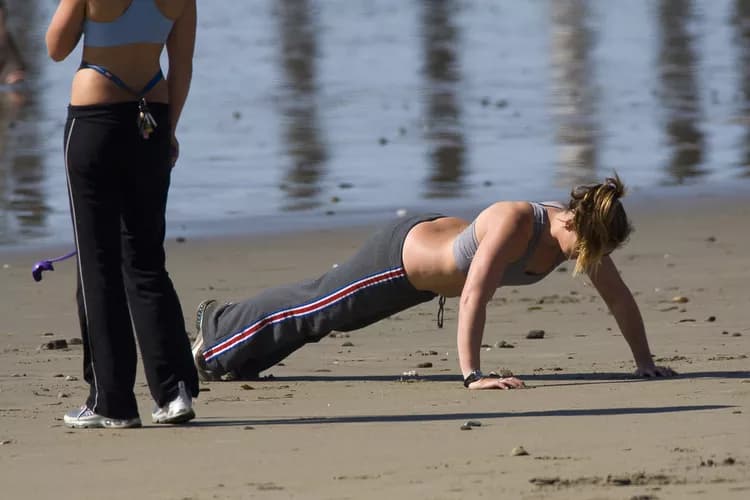Not many people link exercising to relaxing since it is considered to be an energetic activity that involves attention and focus. However, physical activity and certain relaxation exercises can help the body relax, and as a positive consequence, help relieve periodic stress that builds up in us. Applied in a gradual and controlled manner, physical stress, or exercise, can lessen the ill-effects of stress.
The mechanism of action of exercise can be explained on a neurochemical and behavioral basis. Exercising causes a reduction in the level of stress hormones in the body such as cortisol and adrenaline. It also causes an increase in the production of endorphins, which are chemicals that elevate one’s mood and naturally relieve pain. Certain behavioral factors, such as one’s self-image and self-confidence, are enhanced as one’s body becomes toned and stamina increases that help relieve stress. Regular exercise brings a certain discipline into one’s life, which extends to other personal and professional aspects as well. Participating in sports and exercising also provides an avenue to socialize and get away from work and the stresses it involves.
Almost any type of exercise helps with stress reduction. Muscular meditation or the process of using large muscle groups in a repetitive and rhythmic fashion is best for lowering stress levels. Examples of this type of exercise are walking and jogging.
Stress can produce physical symptoms, such as muscle tenseness, headaches, and heartburn, which cause additional mental stress. This turns into a cycle of stress that harms the body and mind. Auto regulation exercises are a group of techniques designed to break this cycle of stress. Some approaches include:
- Breathing exercises: Yoga employs gentle, stretching movements and controlled breathing. Learning to mimic the slow, deep, and regular breathing during relaxation causes the body to relax. Deep breathing is easy to learn and can be done at any place and at any time. Repeating the exercise 4-6 times a day is proven to help reduce stress.
- Mental exercises: Writing down one’s thoughts, working out on a puzzle, or talking with a supportive partner are mental exercises that aid in stress reduction. Even meditation is a tool that can help reverse the physiological effects of stress such as rise in blood pressure and increased heart rate.
- Progressive muscular relaxation: This technique is more difficult to learn as compared to deep breathing. It involves focusing on major muscle groups in a sequential manner. Beginning with the facial muscles, each muscle is tightened and then relaxed. A sensation of relaxation is felt when a muscle group is loosened.
Regular physical activity improves the overall well-being of the body by increasing energy, delaying the aging process, and warding off illnesses. It is recommended that one performs 30-40 minutes of exercise every day for stress management and good health of the mind and body.
References:
Salmon, P. (2001). Effects of physical exercise on anxiety, depression, and sensitivity to stress: a unifying theory. Clinical psychology review, 21(1), 33-61
http://www.mayoclinic.org/healthy-living/stress-management/in-depth/exercise-and-stress/art-20044469 (accessed on 2/3/2015)
http://www.adaa.org/understanding-anxiety/related-illnesses/other-related-conditions/stress/physical-activity-reduces-st (accessed on 2/3/2015)
http://www.helpguide.org/articles/stress/relaxation-techniques-for-stress-relief.htm (accessed on 2/3/2015)
http://www.health.harvard.edu/staying-healthy/exercising-to-relax (accessed on 2/3/2015)
Helpful Peer-Reviewed Medical Articles:
Bowe, C. L. (2012). Exercise for stress management: the role of outcome expectancy.
Kun, A. 10. Health, stress, well-being and positive affectivity.
Woodgate, R. L., & Leach, J. (2010). Youth’s perspectives on the determinants of health. Qualitative Health Research, 20(9), 1173-1182.
Related Articles
Test Your Knowledge
Asked by users
Related Centers
Related Specialties
Related Physicians
Related Procedures
Related Resources
Join DoveHubs
and connect with fellow professionals


0 Comments
Please log in to post a comment.